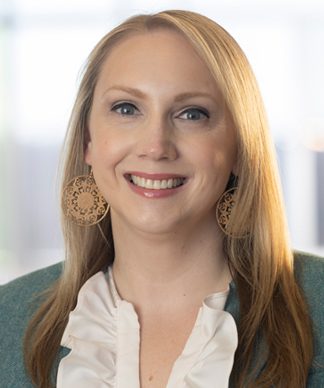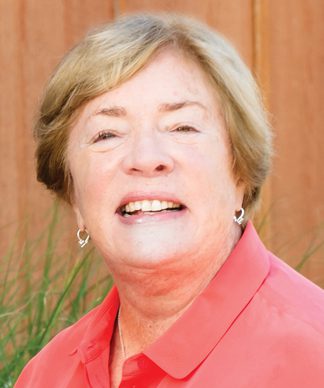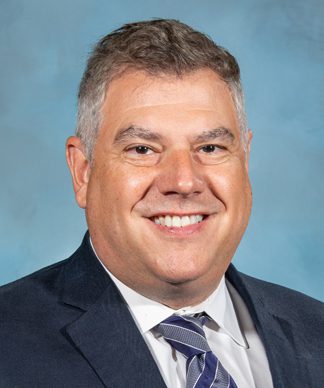Everywhere you look, it seems people are feeling sad, overwhelmed or lonely – and that’s regardless of gender, age, profession or how they appear to the outside world. (So that friend who looks like they have it all on Instagram…maybe not.) Fortunately, many people today are recognizing they need help and then asking for it. It’s a good development for society, but the increased demand has presented a difficulty for the behavioral health industry: a shortage of clinicians.
The rising need

Christi Weston, MD
Even before the pandemic, mental health providers were sounding the alarm about a shortage of trained providers. Now 3 years later, the problem has only worsened as the number of people seeking care has continued to rise, especially among young adults and teens.
“Young people went through really important years of their life and their development during the pandemic, so important milestones didn’t happen the way they typically would. As a result, many college-aged kids and adults are having a hard time,” says Christi Weston, MD, director of outpatient psychiatry at Capital Health.
She notes that the return to brick-and-mortar work and school has also been challenging for teens and young adults who grew accustomed to more flexible remote or hybrid arrangements. “It’s been a huge stressor for a lot of people,” she says.
While many of Weston’s newer clients do not meet the criteria for clinical depression, their symptoms are severe enough to warrant treatment. “It’s what we call adjustment disorders, which is when people don’t have enough symptoms to get a diagnosis of major depression or an anxiety disorder, but they are in need of help adjusting back to life post pandemic.”
And a new factor adding to the increased request for care: reduced stigma. For younger generations, seeking care for mental health issues is not only accepted, it’s encouraged.
“It isn’t a secret anyone has to keep,” says Margaret Harbison, MD, medical director at Centra in Marlton. “Sometimes, when teenagers get a phone call or text, they’ll text back that they’re in their psychiatrist’s office. That’s always a little shocking to me, but so nice that they can just say that to one another. It is a different world now.”
Adapting to the shortages
To address the shortage of mental health practitioners, many health systems and practices are integrating behavioral healthcare into various aspects of the medical system. At Capital Health, licensed clinical social workers collaborate with primary care doctors and psychiatric specialists to address mild to moderate depression, anxiety or adjustment disorders, Weston says.

Margaret Harbison, MD
“These care managers help connect patients with outside referrals, and I help the primary care doctor manage medical treatment – without their patients having to come to my practice and take up slots in my schedule, which don’t exist,” Weston says. “The doctors like it because they have experts giving them advice about the next steps and medical management. Patients like it because they don’t have to make separate psychologist appointments.”
Training future practitioners
The great demand is hitting at a time when more psychiatrists are retiring than starting in the field, says Stephen Scheinthal, DO, the chair for the department of psychiatry at the Rowan-Virtua School of Osteopathic Medicine. The inbalance is creating something of a perfect storm – the result of medical schools cutting psychiatry programs almost 2 decades ago.
At least in New Jersey, medical schools have been playing catch up – significantly increasing spending for mental health programs in the past few years, including $4 million in new funds going directly to psychiatry residency expansion. Rowan’s residency programs, including one with Inspira Medical Center in Vineland, directly benefit. Thanks to new funds, 27 psychiatric residents are in training, up from 16 in 2019, Scheinthal says. In addition, Rowan is establishing a social work program alongside the existing PhD Psychology program.
“To its credit, the state is investing in residents who are being trained to care for New Jersey, and it’s making very strong strides to offer incentives that make it attractive for them to stay in the region,” adds Scheinthal.
Promoting collaboration

Stephen Scheinthal, DO
The shortage of providers is a regular topic that all providers in South Jersey are working to help
alleviate, says Harbison, noting that mental health workers – psychiatrists, psychologists and social workers – regularly update each other about who is currently accepting patients, when new support groups are formed and other treatments available.
“Most of us don’t do waiting lists,” she says. “We used to tell people to look up providers on their insurance card, but that no longer works. I try to refer to another provider so they can get help as quickly as possible.”
Still, if someone feels overwhelmed and is looking for help, the place to start is with their primary doctor, Harbison adds.
“When people are in crisis and in need of emergency psychiatric help,” she says, “they won’t be turned away.”














